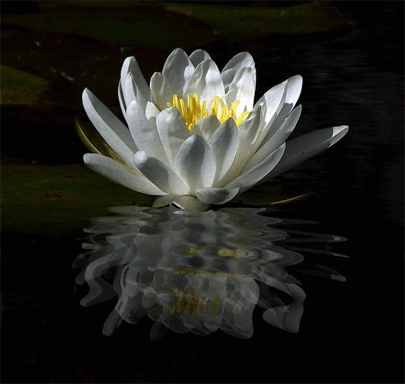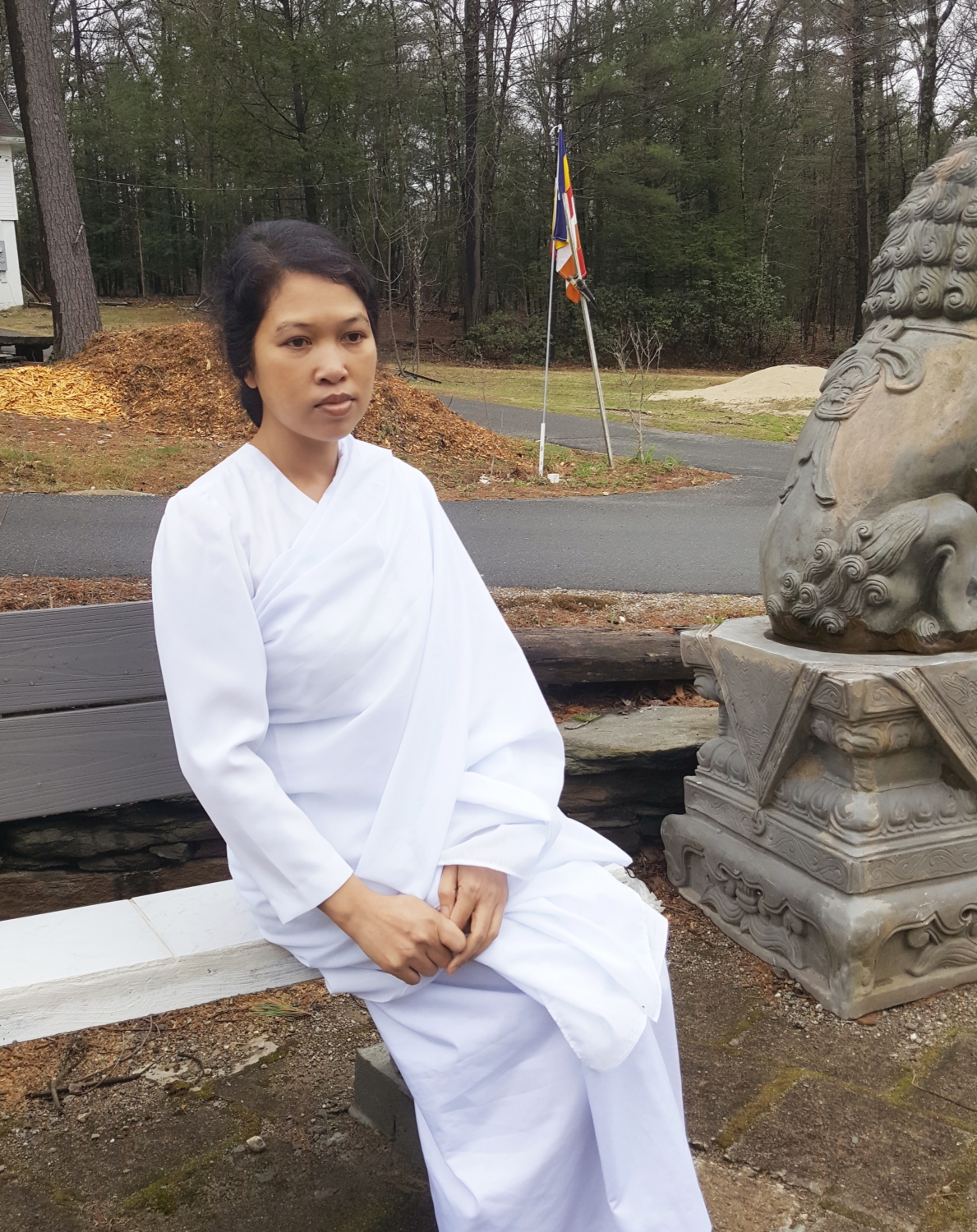-
Comment May 3, 2018
-
Cultivating trust in simplicity
Comment May 3, 2018The quintessential teaching of the Buddha — the nature of mind — is difficult to understand, not because it is complicated but because of its unbearably naked quality. One common method for deciphering the truth is through commentaries, analysis, arguments, and research. But the more we try to decipher this simplicity through academic studies and intellectual analysis, the more we get sidetracked, deterred, or worse, we end up constructing very convincing concepts that we mistake for the simplicity itself. Therefore, one must work hard to accumulate merit. Accumulating merit is the one and only way to cultivate trust in simplicity. But many of us have to first convince ourselves that accumulation of merit works. ~ Dzongsar Khyentse Rinpoche
-
Delusion
Comment May 3, 2018What is delusion? How shall we define it? It is just as when a madman runs outside on a cold winter’s day and jumps into the water to wash himself, too deranged to realize that his body is being frozen. We think that such a man is insane, but in exactly the same way, when a Bodhisattva, clear-minded and undeceived, looks at us, our activities seem to him as demented as those of the lunatic! We should be quite convinced that we are thoroughly deluded and that when things appear to us the way they do, separate from our minds, they do not possess the slightest degree of reality in themselves. But what is it that creates this illusion? It is the mind, and it does so when it takes as real that which is illusory and non-existent. Nevertheless, we should clearly understand that such delusion is actually quite distinct from the mind in itself, the Buddha-nature or Sugatagarbha; it is not something, therefore, which it is impossible for us to remove. ~ Dilgo Khyentse Rinpoche
-
A practicing Buddhist
Comment May 3, 2018As long as you accept and practice these four truths (all compounded things are impermanent, all emotions are pain, all things have no inherent existence, nirvana is beyond concepts) you are a “practicing Buddhist.” You might read about these four truths for the sake of entertainment or mental exercise, but if you don’t practice them, you are like a sick person reading the label on a medicine bottle but never taking the medicine. On the other hand, if you are practicing, there is no need to exhibit that you are Buddhist. As a matter of fact, if it helps you to get invited to some social functions, it is totally fine to hide that you are a Buddhist. But keep in mind that as a Buddhist, you have a mission to refrain as much as possible from harming others, and to help others as much as possible. This is not a huge responsibility, because if you genuinely accept and contemplate the truths, all these deeds flow naturally. ~ Dzongsar Khyentse Rinpoche
-
The Story of Five Hundred Bhikkhus
Comment May 3, 2018Verse 83: Indeed, the virtuous give up all (i.e., attachment to the five khandhas, etc.); the virtuous (lit., the tranquil) do not talk with sensual desire; when faced with joy or sorrow, the wise do not show elation or depression.
The Story of Five Hundred Bhikkhus
While residing at the Jetavana monastery, the Buddha uttered Verse (83) of this book, with reference to five hundred bhikkhus.
At the request of a brahmin from Veranja, the Buddha was, on one occasion, staying at Veranja with five hundred bhikkhus. While they were at Veranja, the brahmin failed to look after them. The people of Varanja, who were then facing a famine, could offer very little to the bhikkhus when they went on their rounds for alms-food. In spite of all these hardships, the bhikkhus were not disheartened; they were quite contented with the small amount of shrivelled grain which the horse-traders offered them daily. At the end of the vasa, after informing the brahmin from Veranja, the Buddha returned to the Jetavana monastery, accompanied by the five hundred bhikkhus. The people of Savatthi welcomed them back with choice food of all kinds.
A group of people living with the bhikkhus, eating whatever was left over by the bhikkhus, ate greedily like true gluttons and went to sleep after their meals. On waking up, they were shouting, singing and dancing, thus making themselves a thorough nuisance. When the Buddha came in the evening to the congregation of bhikkhus, they reported to him about the behaviour of those unruly persons, and said, “These people living on the leftovers were quite decent and well-behaved when all of us were facing hardship and famine in Veranja. Now that they have enough good food they are going about shouting, singing and dancing, and thus make themselves a thorough nuisance. The bhikkhus, however, behave themselves here just as they were in Veranja”.
To them the Buddha replied, “It is in the nature of the foolish to be full of sorrow and feel depressed when things go wrong, and to be full of gladness and feel elated when things go well. The wise, however, can withstand the ups and downs of life.”
Then the Buddha spoke in verse as follows:
Verse 83: Indeed, the virtuous give up all (i.e., attachment to the five khandhas, etc.); the virtuous (lit., the tranquil) do not talk with sensual desire; when faced with joy or sorrow, the wise do not show elation or depression.
Dhammapada Verse 83
Pancasatabhikkhu VatthuSabbattha ye sappurisa cajanti
na kamakama lapayanti santo
sukhena phuttha atha va dukhena
na uccavacam pandita dassayanti.Source: Tipitaka
-
Passionlessness
Comment May 2, 2018Passionlessness is what enables you to practice the Dharma and to quiet your body, speech, and mind. It is related to the development of fearlessness and fearlessness. The idea of self-existence, or ego, creates tremendous self-hatred, which automatically projects out to others. In contrast, when there is kindness to oneself and others, this automatically creates a quality of workability. It creates immense space or emptiness.~Chögyam Trungpa
-
Anxiety is the illness of our age
Comment May 1, 2018Someone asked me, “Aren’t you worried about the state of the world?” I allowed myself to breathe and then I said, “What is most important is not to allow your anxiety about what happens in the world to fill your heart. If your heart is filled with anxiety, you will get sick, and you will not be able to help.” There are wars — big and small — in many places, and that can cause us to lose our peace. Anxiety is the illness of our age. We worry about ourselves, our family, our friends, our work, and the state of the world. If we allow worry to fill our hearts, sooner or later we will get sick. ~ Thich Nhat Hanh
-
Being kind to oneself
Comment May 1, 2018The kindness to oneself that I was speaking of is rather different from the self-fixation of selfishness. For example, the Buddha said, “I have shown you the path to liberation but know that its achievement depends on you.” In other words, we have to take responsibility for the achievement of liberation through our own efforts. It is the undertaking of responsibility for one’s own liberation that I’m referring to as kindness to oneself. What we normally mean by self-cherishing includes within it the implicit abandonment of the welfare of others and the rejection of any effort to achieve that welfare of others. Therefore, it is very different from what I mean by kindness to oneself. ~17th Karmapa
-
Decency is free from trickery
Comment May 1, 2018When we’re having trouble maintaining our ground or ourselves, we play all kinds of tricks. That trickery brings hope and fear. You’re so tempted; at the same time, you’re so afraid. Decency is being free from trickery, free from the tricks we play on ourselves or on each other to maintain our basic existence. In that way, decency is being loyal to others, loyal to the most intimate experiences that you’ve shared with others. Loyalty is twofold. Quite simply, it is a commitment to working gently with yourself and being kind to others. ~Chögyam Trungpa
-
Vesakha Puja – Buddha Day
Comment April 28, 2018By Venerable Mahinda
The significance of Vesak lies with the Buddha and his universal peace message to mankind.
As we recall the Buddha and his Enlightenment, we are immediately reminded of the unique and most profound knowledge and insight which arose in him on the night of his Enlightenment. This coincided with three important events which took place, corresponding to the three watches or periods of the night.
During the first watch of the night, when his mind was calm, clear and purified, light arose in him, knowledge and insight arose. He saw his previous lives, at first one, then two, three up to five, then multiples of them .. . ten, twenty, thirty to fifty. Then 100, 1000 and so on…. As he went on with his practice, during the second watch of the night, he saw how beings die and are reborn, depending on their Karma, how they disappear and reappear from one form to another, from one plane of existence to another. Then during the final watch of the night, he saw the arising and cessation of all phenomena, mental and physical. He saw how things arose dependent on causes and conditions. This led him to perceive the arising and cessation of suffering and all forms of unsatisfactoriness paving the way for the eradication of all taints of cravings. With the complete cessation of craving, his mind was completely liberated. He attained to Full Enlightenment. The realisation dawned in him together with all psychic powers.
This wisdom and light that flashed and radiated under the historic Bodhi Tree at Buddha Gaya in the district of Bihar in Northern India, more than 2500 years ago, is of great significance to human destiny. It illuminated the way by which mankind could cross, from a world of superstition, or hatred and fear, to a new world of light, of true love and happiness.
The heart of the Teachings of the Buddha is contained in the teachings of the Four Noble Truths, namely,
The Noble Truth of Dukkha or suffering
The Origin or Cause of suffering
The End or Cessation of suffering Continue reading

















